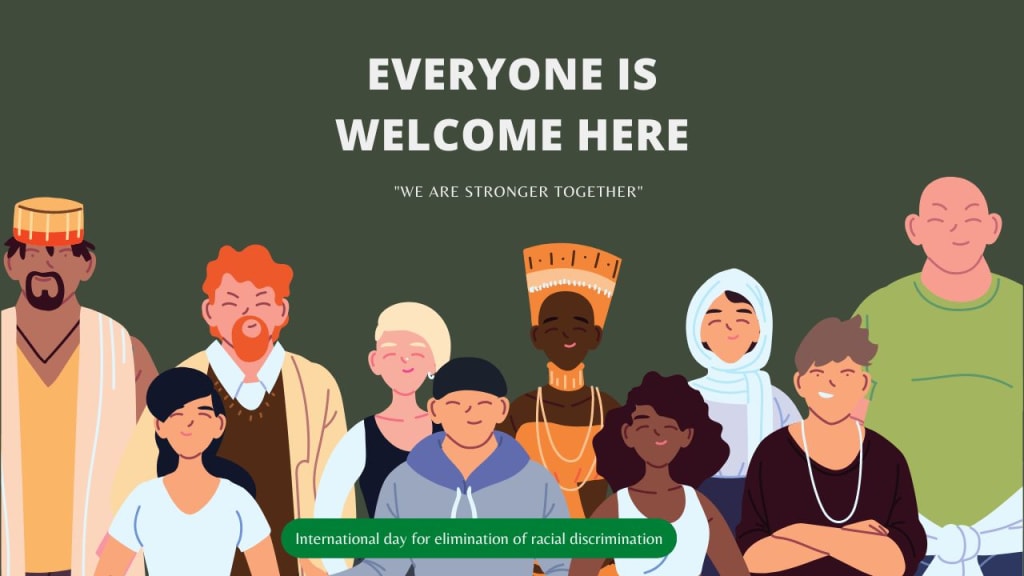Racial Injustice: Addressing Systemic Discrimination
Racial Injustice and Systemic Discrimination

Introduction:
Racial injustice and systemic discrimination continue to persist in societies around the world, undermining the principles of equality and justice. Addressing this pressing issue requires a collective effort to dismantle systemic biases, challenge discriminatory practices, and promote inclusivity. Racial injustice continues to be a pressing issue that demands our attention and action. It manifests in various forms, from systemic discrimination to overt acts of racism. In this article, we will embark on a journey to explore the multifaceted nature of racial injustice, shedding light on its historical roots, its impact on individuals and communities, and the importance of fostering understanding and equality. Let's delve into the complexities of racial injustice and discover ways to challenge and dismantle it by shedding light on the impact of systemic discrimination and the transformative power of advocacy. We aim to engage readers and spark meaningful conversations that lead to positive change.
1. Unveiling Systemic Discrimination
Systemic discrimination refers to ingrained biases, policies, and practices that perpetuate racial inequality and hinder social progress. By examining the various aspects of society, such as education, criminal justice, employment, and housing, we can uncover the underlying structures that contribute to racial injustice.
2. Historical Context: Understanding the Roots
To address racial injustice effectively, we must acknowledge the historical context that has shaped systemic discrimination. Historical events, such as slavery, colonization, and segregation, have had lasting impacts on marginalized communities. Recognizing this history allows us to confront the present-day consequences of systemic discrimination.
3. Intersectionality: Recognizing Multiple Identities
Addressing racial injustice requires an intersectional approach that acknowledges the overlapping experiences of individuals who face discrimination based on race, gender, sexuality, and other identities. Recognizing and amplifying the voices of those at the intersection of multiple marginalized identities is crucial for achieving comprehensive social justice.
4. Education and Awareness: Promoting Understanding
Education and awareness play a vital role in combating racial injustice. By promoting inclusive curricula, educating individuals about the historical and contemporary issues faced by marginalized communities, and fostering cross-cultural understanding, we can challenge biases and create a more inclusive society.
5. Legal Reforms: Advocating for Change
Systemic discrimination requires legal reforms that address discriminatory practices and promote equal treatment under the law. Advocacy for criminal justice reform, voting rights, fair housing, and anti-discrimination legislation can create tangible change and ensure that marginalized communities have equal access to justice and opportunities.
6. Economic Empowerment: Closing the Wealth Gap
Racial injustice often manifests in economic disparities, with marginalized communities experiencing limited access to wealth, employment opportunities, and business resources. By promoting economic empowerment initiatives, such as affordable housing programs, equitable lending practices, and support for minority-owned businesses, we can work towards closing the wealth gap and fostering economic justice.
7. Allyship and Solidarity: Amplifying Voices
Addressing racial injustice requires collective action. Allies and individuals from privileged backgrounds have a responsibility to amplify the voices of marginalized communities, challenge their own biases, and actively support anti-racist initiatives. Together, we can foster a culture of solidarity and create a society where equality and justice prevail.
8. Microaggressions and Everyday Racism:
Microaggressions are subtle, often unintentional acts or comments that reinforce racial stereotypes and create a hostile environment.However, the impact of microaggressions on individuals' mental health, well-being, and sense of belonging cannot be overlooked. Hence, the importance of recognizing and addressing these everyday forms of racism is necessary in for our society.
Conclusion:
Addressing racial injustice and dismantling systemic discrimination is a critical endeavor that demands sustained commitment and collective action. By raising awareness, promoting education, advocating for legal reforms, and fostering economic empowerment, we can challenge the deeply rooted biases that perpetuate racial inequality. Let us strive to build a society that values diversity, upholds justice, and ensures that every individual, regardless of their race or background, can thrive and contribute to a better future.
About the Creator
Dwight Wilson
Hi! My name is Dwight Wilson from the wonderful Island of Jamaica. I am a humanitarian who seeks to make the world a better place one day at a time. I love to write on interesting topics and I wish to allow persons to enjoy my writings.





Comments
There are no comments for this story
Be the first to respond and start the conversation.